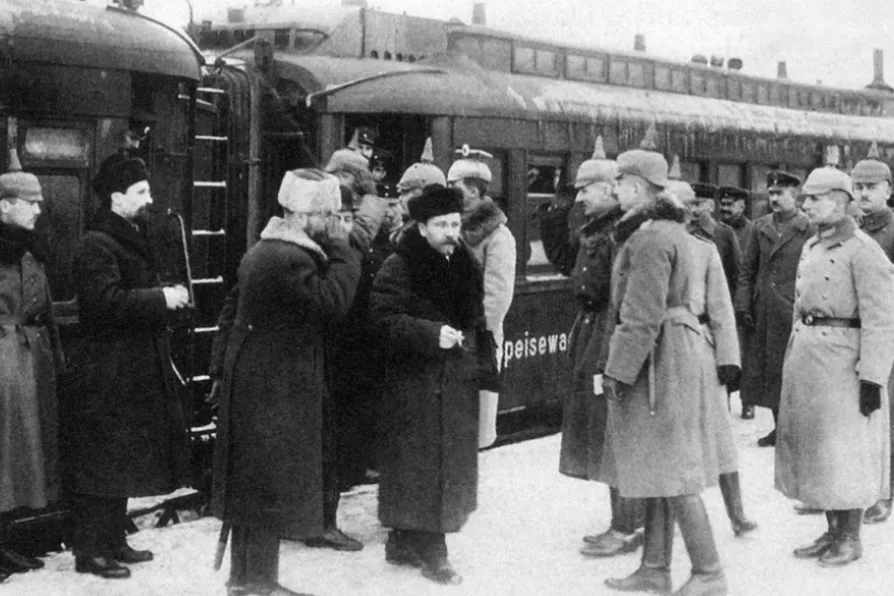As tens of thousands return to the streets for the first national Palestine march of 2026, this movement refuses to be sidelined or silenced, says PETER LEARY

 Treaty of Brest-Litovsk – officers from the staff of Field Marshall von Hindenburg meet the delegation of Soviet Russia, Lev Kamenev (centre)
Treaty of Brest-Litovsk – officers from the staff of Field Marshall von Hindenburg meet the delegation of Soviet Russia, Lev Kamenev (centre)
As February 1918 opened its doors, the heart-warming effect of the case for peace and socialism advanced by the Bolshevik revolution and delivered in person by ambassador Maxim Litvinov — to rapturous applause at late January’s Nottingham Labour conference — was much felt in labour movement circles.
The Herald declared, moreover, that the conference had killed “jingoism” and that “no-one talked of crushing Germany,” but the war went on.
“Post rushing, trench raiding and patrol conflicts remain the limited items of infantry activity these times,” declared the Liberal Daily News on February 6, but deaths, wounds and other usual front-line sufferings were plentiful and there was a justified general expectation that a major German offensive was coming soon.

Washington plays innocent bystander while pouring weapons and intelligence into Ukraine, just as it enables the Gaza genocide — but every US escalation leaves Ukraine weaker than the neutrality deal rejected in 2022, argue MEDEA BENJAMIN and NICOLAS JS DAVIES

In the first half of a two-part article, PETER MERTENS looks at how Nato’s €800 billion ‘Readiness 2030’ plan serves Washington’s pivot to the Pacific, forcing Europeans to dismantle social security and slash pensions to fund it

JOHN ELLISON recalls the momentous role of the French resistance during WWII











